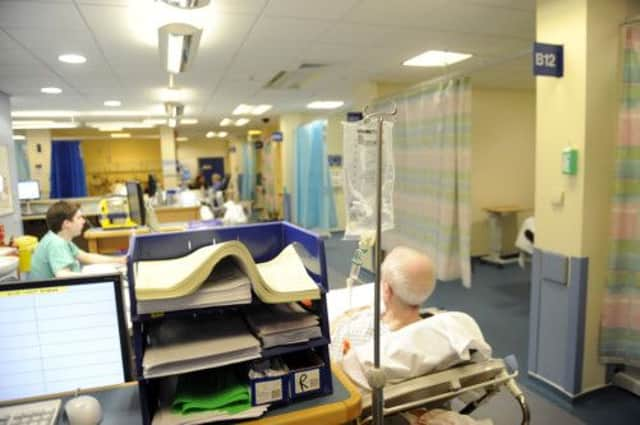‘Injustice’ to vulnerable NHS patient slammed


The move came after the Scottish Public Services Ombudsman upheld a complaint about a “flawed decision” to remove a feeding tube from a woman with Down’s syndrome, who later died from further illness.
Officials from the Mental Welfare Commission for Scotland have now been asked to investigate the complaint in what the ombudsman said was an “injustice” to the 55-year-old patient, who had learning disabilities and severe dementia.
Advertisement
Hide AdAdvertisement
Hide AdOmbudsman Jim Martin said the case highlighted concerns about how hospitals cared for patients when an individual was viewed as “a most vulnerable member of society”, as he questioned the “quality of decision-making” by some NHS clinicians.
Health campaigners and MSPs last night joined the call for improved care for patients with life-long learning difficulties and conditions such as dementia in the wake of the case.
The issue came to light after Mr Martin highlighted the case of Miss A, who was admitted to Monklands Hospital in NHS Lanarkshire after suffering infections and breathing problems, some of which were caused by a difficulty in digesting food.
Dieticians at the hospital found that she had lost a third of her body weight and it was later decided to use a nasogastric (NG) tube to feed the patient.
Medics later removed the tube, amid concerns that the woman was not benefitting from the treatment – a decision the ombudsman said was “not reasonable”.
Miss A’s carers for the patient only became aware of the decision to remove the feeding tube after she was discharged from hospital on 8 September, 2011, after three months of treatment.
Miss A died just over three months after leaving hospital, after a further illness. Her carer had highlighted concerns about the feeding regime in the period before Miss A’s death.
The ombudsman found hospital clinicians had failed to consult the patient’s carer, referred to as Ms C – who made the complaint – about care decisions.
Advertisement
Hide AdAdvertisement
Hide AdHe said NHS Lanarkshire had failed to failed to ensure legal safeguards were in place early enough to protect a vulnerable patient, adding that the case raised general concerns about the standard of care for patients with similar conditions to Miss A and clinicians’ decisions on treating vulnerable people.
Mr Martin said the complaints “raise serious concerns about the quality of decision-making, consideration of capacity issues and recording of these issues with respect to a most vulnerable member of society, namely an adult with life-long learning difficulties and dementia.”
He said: “The clinical advice I have received is that the decision not to feed Miss A by NG tube was not reasonable. My conclusion on this complaint demonstrates an injustice suffered by Miss A.”
Margaret Watt, chair of the Scotland Patients Association, said: “We should be giving respect and dignity to all patients, irrespective of whether they have a disability or not.”
AN NHS Lanarkshire spokeswoman said: “We have fully accepted the recommendations within the ombudsman’s report and will develop an action plan to address them.
“Since these events took place, significant work has been undertaken in terms of implementing dementia standards.”